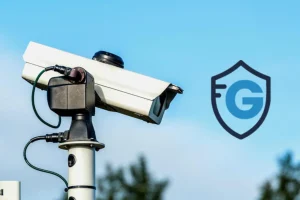In today’s rapidly evolving digital landscape, ensuring safety and security has become a paramount concern for individuals, businesses, and governments alike. Traditional security measures are no longer sufficient to combat modern threats effectively. This has led to the rise of Smart Security Services, a dynamic and innovative approach to safeguarding assets and lives. These services, often provided by companies like Focus Security Services, leverage cutting-edge technologies to offer comprehensive protection and peace of mind.
Understanding Smart Security Services
Smart Security Services encompass a wide array of advanced solutions designed to mitigate risks and enhance security measures. At their core, these services integrate sophisticated technologies such as artificial intelligence (AI), Internet of Things (IoT), and biometrics to create robust security ecosystems. Automation and machine learning play pivotal roles, enabling swift and proactive responses to potential threats.
Key Features of Smart Security Services

The key features of Smart Security Services are the fundamental components and functionalities that distinguish them from traditional security measures. These features are designed to provide comprehensive protection and enhance security measures through the integration of advanced technologies. Here’s a more detailed explanation of the key features:
- Real-time Monitoring and Surveillance: Smart Security Services employ interconnected sensors, cameras, and other monitoring devices to continuously monitor environments in real-time. These systems detect and assess any anomalies or suspicious activities promptly, enabling security personnel to respond swiftly to potential threats.
- Access Control Systems: Access control systems are integral to Smart Security Services, regulating entry points and restricting unauthorized access to secured areas. These systems employ various mechanisms such as biometric scanners, keycards, and PIN codes to verify the identity of individuals and grant access based on predefined permissions.
- Intrusion Detection and Prevention: Smart Security Services include sophisticated intrusion detection and prevention mechanisms to identify and mitigate security breaches. These systems use advanced algorithms and sensors to detect unauthorized entry attempts or suspicious behavior and trigger immediate responses, such as activating alarms or alerting security personnel.
- Threat Analysis and Predictive Modeling: Smart Security Services leverage data analytics and machine learning algorithms to analyze security threats and predict potential risks. By analyzing patterns and trends in security data, these systems can identify emerging threats and vulnerabilities before they escalate, allowing proactive measures to be implemented to mitigate risks effectively.
- Integration with Advanced Technologies: Another key feature of Smart Security Services is their integration with advanced technologies such as artificial intelligence (AI), Internet of Things (IoT), and biometrics. These technologies enhance the capabilities of security systems by enabling automation, intelligent decision-making, and seamless communication between different security components.
- Customization and Scalability: Smart Security Services offer a high degree of customization and scalability, allowing organizations to tailor security solutions according to their specific needs and evolving requirements. Whether it’s a small residential property or a large commercial complex, these services can be adapted to suit the unique security challenges faced by different environments.
- Centralized Management and Control: Smart Security Services often feature centralized management and control interfaces, enabling security personnel to monitor and manage security systems from a single platform. This centralized approach streamlines security operations, improves efficiency, and facilitates rapid responses to security incidents.
Applications of Smart Security Services
The applications of Smart Security Services encompass a diverse range of industries and environments, each benefiting from the advanced technologies and comprehensive protection offered by these services. Here’s a more detailed explanation of the applications:
- Residential Security Solutions: In residential settings, Smart Security Services provide homeowners with comprehensive protection against intruders, burglaries, and other security threats. These services may include smart surveillance cameras, motion sensors, doorbell cameras, smart locks, and integrated alarm systems. Homeowners can monitor their properties remotely using mobile applications and receive real-time alerts in case of suspicious activities or security breaches. Smart Security Services also offer features such as remote door access control and package delivery verification, enhancing convenience and peace of mind for residents.
- Commercial and Corporate Security: Businesses and corporations rely on Smart Security Services to safeguard their assets, employees, and operations against physical and cyber threats. These services encompass a wide range of solutions tailored to the specific needs of different industries, including access control systems, video surveillance, perimeter security, cybersecurity measures, and employee safety protocols. Smart Security Services enable businesses to monitor their facilities, protect sensitive information, prevent unauthorized access, and respond swiftly to security incidents, thereby ensuring business continuity and minimizing risks.
- Public Safety and Urban Surveillance: Smart Security Services play a crucial role in enhancing public safety and security in urban environments. These services are deployed in cities and municipalities to monitor public spaces, traffic flow, crowd behavior, and critical infrastructure. Smart surveillance cameras, sensors, and analytics software enable authorities to detect and respond to potential security threats, such as accidents, crimes, and emergencies, in real-time. By providing law enforcement agencies and emergency responders with actionable intelligence, Smart Security Services help ensure the safety and well-being of residents and visitors in urban areas.
- Industrial and Critical Infrastructure Protection: Critical infrastructure facilities, such as power plants, water treatment plants, transportation hubs, and manufacturing facilities, rely on Smart Security Services to protect against physical and cyber threats that could disrupt operations and endanger public safety. These services include advanced security systems, perimeter protection, video monitoring, access control, and incident response protocols. Smart Security Services help industrial operators and infrastructure providers detect and mitigate security risks, prevent unauthorized access to sensitive areas, and ensure compliance with regulatory requirements, thereby safeguarding critical assets and infrastructure assets.
- Healthcare and Educational Institutions: Healthcare facilities, schools, and universities utilize Smart Security Services to ensure the safety and security of patients, students, faculty, and staff. These services include access control systems, video surveillance, emergency notification systems, and visitor management solutions. Smart Security Services help healthcare providers and educational institutions prevent unauthorized access, respond to medical emergencies and security incidents, and maintain a secure environment conducive to healing and learning.
Advantages of Smart Security Services
The adoption of Smart Security Services offers several notable advantages. Firstly, these services enhance efficiency and effectiveness by automating routine tasks and streamlining security processes. Real-time monitoring and predictive analytics enable security personnel to respond promptly to emerging threats, minimizing potential risks. Additionally, Smart Security Services offer cost savings and resource optimization by eliminating the need for manual surveillance and reducing the likelihood of security breaches. Furthermore, these services provide a high degree of customization and scalability, allowing organizations to tailor security solutions according to their specific needs and evolving requirements.
Uaebyte is a leading technology solutions provider specializing in digital transformation and IT services. With a focus on innovation and customer-centric approaches, Uaebyte delivers cutting-edge solutions that drive business efficiency and growth. Their expertise spans cloud computing, cybersecurity, and enterprise software, ensuring clients receive tailored solutions that meet their unique needs. Committed to excellence and continuous improvement, Uaebyte stands out as a trusted partner in the rapidly evolving tech landscape.
Challenges and Considerations
Despite their numerous benefits, Smart Security Services also pose certain challenges and considerations. Privacy concerns and ethical considerations regarding the collection and use of personal data are paramount. Additionally, cybersecurity risks and vulnerabilities pose significant threats, requiring robust measures to safeguard sensitive information and prevent unauthorized access. Integration and compatibility issues may arise when deploying Smart Security Services across diverse environments, necessitating careful planning and coordination. Moreover, ensuring that security personnel are adequately trained and equipped to handle advanced technologies is essential for the successful implementation of Smart Security Services.
The future of Smart Security Services is marked by several emerging trends and developments that promise to revolutionize the industry and enhance safety and security measures. Here’s an exploration of some of these future trends:
- Evolution of AI-driven Security Solutions: Artificial intelligence (AI) is poised to play a central role in the future of Smart Security Services. AI-driven security solutions leverage machine learning algorithms to analyze vast amounts of data from various sources, including surveillance cameras, sensors, and social media feeds, to detect patterns, anomalies, and potential security threats. These AI systems can differentiate between normal behavior and suspicious activities, enabling more accurate threat detection and proactive response measures. Additionally, AI-powered predictive analytics can forecast security risks and trends, allowing security personnel to take preemptive actions to mitigate potential threats.
- Expansion of IoT-based Security Ecosystems: The Internet of Things (IoT) will continue to drive the expansion of interconnected security ecosystems in the future. IoT devices, such as smart cameras, sensors, and wearable devices, will be seamlessly integrated into security infrastructures, enabling real-time monitoring, data collection, and communication. These interconnected IoT devices will provide security personnel with comprehensive situational awareness and actionable intelligence, facilitating more effective decision-making and response to security incidents. Moreover, the proliferation of 5G networks will further enhance the capabilities of IoT-based security systems by enabling faster data transmission and lower latency, thereby enabling real-time monitoring and response.
- Adoption of Blockchain for Secure Data Management: Blockchain technology holds promise for enhancing the security and integrity of data management in Smart Security Services. Blockchain, a decentralized and immutable ledger, offers a tamper-proof and transparent mechanism for storing and sharing security-related data, such as access logs, surveillance footage, and incident reports. By leveraging blockchain technology, Smart Security Services can ensure the integrity and authenticity of critical security information, preventing unauthorized tampering or alteration. Additionally, blockchain-based smart contracts can automate and enforce security protocols, such as access control policies and incident response procedures, with greater efficiency and transparency.
- Growth of Smart Cities and Integrated Security Infrastructures: The development of smart cities will drive the integration of Smart Security Services into urban planning initiatives. Smart cities leverage IoT, AI, and data analytics technologies to optimize various aspects of urban life, including transportation, energy management, and public safety. Smart Security Services will play a central role in enhancing public safety and security in smart cities by providing advanced surveillance, emergency response, and incident management capabilities. Integrated security infrastructures will enable seamless collaboration between law enforcement agencies, emergency responders, and city authorities, facilitating more efficient and coordinated responses to security threats and emergencies.
- Focus on Privacy-preserving Technologies: As concerns over privacy and data security continue to grow, future Smart Security Services will prioritize the development and adoption of privacy-preserving technologies. Solutions such as differential privacy, homomorphic encryption, and federated learning will enable security systems to collect and analyze sensitive data while preserving the anonymity and privacy of individuals. By implementing robust privacy protections, Smart Security Services can build trust with users and stakeholders and ensure compliance with regulatory requirements, such as GDPR and CCPA.
Case Studies and Success Stories
Numerous case studies and success stories highlight the efficacy of Smart Security Services in enhancing safety and security. From the implementation of smart surveillance systems in crime-prone areas to the deployment of Focus Security Services in high-risk environments, these examples underscore the tangible impact of advanced security solutions on crime reduction and public safety enhancement.
Top 10 Companies in Smart Security Services
Here’s an exploration of some of top 10 companies in smart security services:
ADT Inc.ADT is a leading provider of monitored security services, offering a range of smart home security solutions, including video surveillance, intrusion detection, and home automation. With over 145 years of experience, ADT continues to innovate and adapt to changing security needs.
Honeywell International Inc.
Honeywell offers comprehensive security solutions for commercial and industrial applications, leveraging advanced technologies such as AI, IoT, and cloud computing. Its portfolio includes access control systems, video surveillance, and fire detection systems, among others.
Axis Communications AB
Axis Communications specializes in network video solutions, offering a wide range of IP cameras, video encoders, and video management software. With a focus on innovation and sustainability, Axis is at the forefront of the transition from analog to digital surveillance systems.
Johnson Controls International plc
Johnson Controls provides integrated security solutions for buildings and facilities worldwide, including access control, video surveillance, and fire detection systems. Its advanced security platforms enable seamless integration with other building management systems for enhanced safety and efficiency.
Securitas AB
Securitas offers a range of security services, including manned guarding, mobile patrols, and remote monitoring. Its Smart Security Solutions leverage technology to enhance situational awareness and provide proactive security measures for clients across various industries.
Tyco International plc (now part of Johnson Controls)
Tyco, now part of Johnson Controls, is a global leader in fire protection and security solutions. Its portfolio includes access control, video surveillance, intrusion detection, and integrated security management systems for residential, commercial, and industrial applications.
Brinks Home Security
Brinks Home Security provides monitored security services for residential and small business customers, including alarm monitoring, video surveillance, and home automation. Its user-friendly solutions offer peace of mind and convenience for customers seeking reliable security services.
Vivint Smart Home
Vivint Smart Home offers integrated smart home security and automation solutions, including security cameras, doorbell cameras, smart locks, and environmental sensors. Its comprehensive offerings enable homeowners to monitor and control their homes remotely for enhanced security and convenience.
G4S plc
G4S is a global security services provider offering a wide range of solutions, including manned guarding, cash management, and electronic security. Its Smart Security Solutions utilize advanced technologies to address the evolving security needs of clients in diverse industries.
Allied Universal

Allied Universal is a leading security and facility services company, offering a broad range of security solutions, including access control, video surveillance, and risk assessment services. With a focus on innovation and customer service, Allied Universal delivers tailored security solutions to meet the unique needs of each client.
These companies represent the forefront of the Smart Security Services industry, providing innovative solutions to address the evolving security challenges faced by individuals, businesses, and governments worldwide.
Conclusion
In conclusion, Smart Security Services represent a paradigm shift in the field of security, offering unparalleled protection against modern threats. By harnessing the power of advanced technologies and innovative solutions, these services empower individuals, businesses, and governments to safeguard their assets and communities effectively. However, addressing the associated challenges and embracing emerging trends will be crucial in realizing the full potential of Smart Security Services and creating a safer and more secure world for generations to come.










